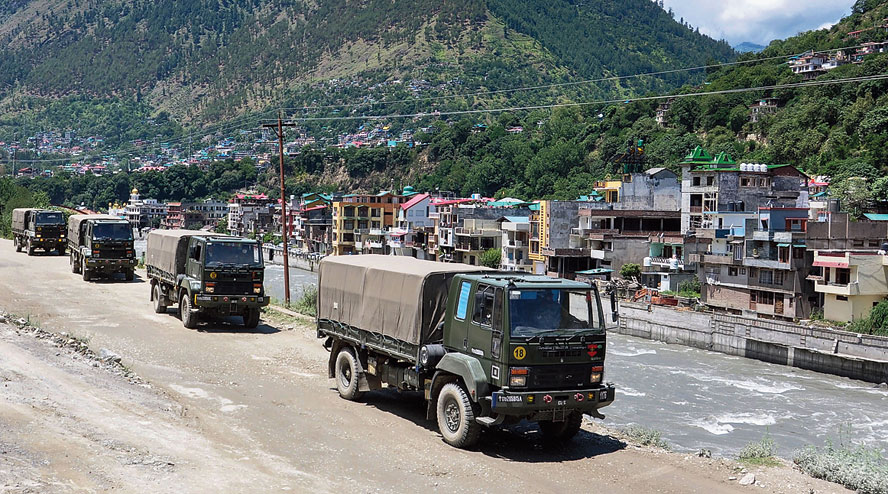The next round of high-level military talks between India and China to take forward the disengagement process in remaining friction points along the Line of Actual Control (LAC) in eastern Ladakh is expected to take place next week, officials said on Saturday.
Officials said both sides have exchanged notes as part of preparations for the 13th round of military talks to push for disengagement in the remaining friction points.
Military sources said disengagement in Hot Springs and some other areas are expected to be discussed at the next round of Corps Commander-level talks.
"A clarity on the date and venue for the talks is expected in the next three-four days," said a source.
The talks are expected to take place in the second week of October, officials said.
Meanwhile, after a comprehensive review of the ground situation in the mountainous region, Army Chief Gen MM Naravane, who began his two-day visit to eastern Ladakh on Friday, said Indian soldiers are fully ready in "every possible way" to deal with any eventuality in eastern Ladakh.
"I always try to go to the forward areas so that I can see for myself the situation. I am very happy that our soldiers are fully ready in every possible way," said Gen Naravane said at the end of the visit to eastern Ladakh.
In a separate development, the Army has deployed its K9-Vajra 155mm howitzer in eastern Ladakh as part of series of measures to further boost its combat capabilities.
The army chief visited several forward areas in eastern Ladakh and carried out a comprehensive review of India's operational preparedness during his visit, according to officials.
Delivering a lecture at an industry chamber on Thursday, Gen Naravane had said the "unprecedented" military standoff with China required an immediate response and large-scale mobilisation of resources at a time when the country was faced with the coronavirus pandemic.
"The unprecedented developments necessitated large scale resource mobilisation, orchestration of forces and immediate response, all this in a Covid-infested environment," he said.
The border standoff between the Indian and Chinese militaries erupted on May 5 last year in eastern Ladakh following a violent clash in the Pangong lake area.
Both sides gradually enhanced their deployment by rushing in tens of thousands of soldiers as well as heavy weaponry.
As a result of a series of military and diplomatic talks, the two sides completed the disengagement process in the Gogra area last month.
In February, the two sides completed the withdrawal of troops and weapons from the north and south banks of the Pangong lake in line with an agreement on disengagement.
Each side currently has around 50,000 to 60,000 troops along the LAC in the sensitive sector.
 Wednesday, 22 January 2025
Wednesday, 22 January 2025









